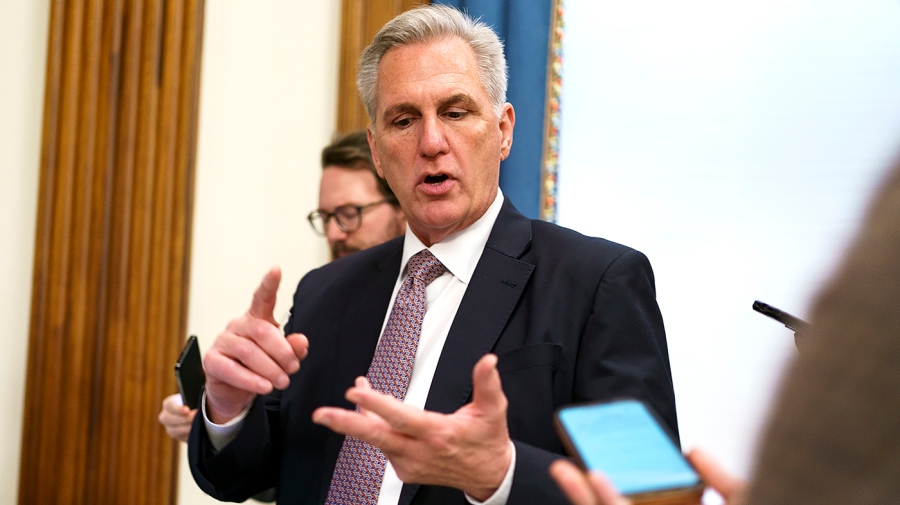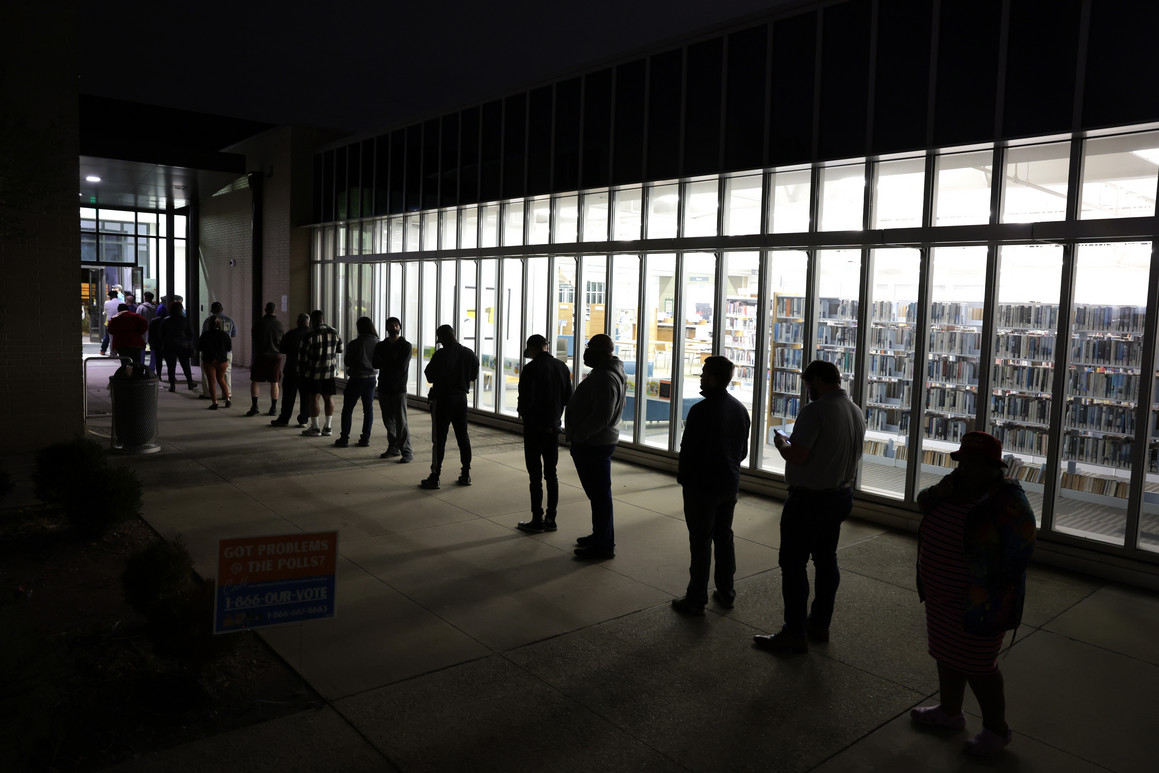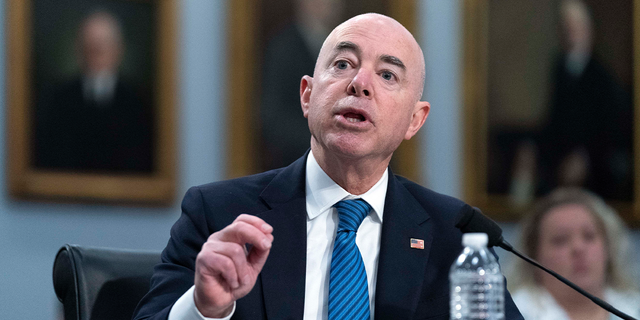Just In | The Hill
Three southern states are gearing up for governors’ contests in 2023 that could give an early indication of the way the political winds are blowing ahead of the presidential election in 2024.
Louisiana, Kentucky and Mississippi will all be holding off-year gubernatorial elections. While Louisiana Gov. John Bel Edwards (D) is term-limited and unable to run again, Govs. Tate Reeves (R) in Mississippi and Andy Beshear (D) in Kentucky are up for reelection.
Here’s what to know about each gubernatorial race taking place next year.
Kentucky
Gov. Andy Beshear (D) is running for a second term in the Bluegrass State after winning his first term by less than a percentage point in 2019 against former Gov. Matt Bevin (R).
Serving as governor in a state that former President Trump won by over 25 points in 2020, the Kentucky Democrat enjoys relatively high support. Polling from Morning Consult released in October found that Beshear ranked as one of the top 10 most popular governors in the country, sitting at an approval rating of 59 percent and up from the previous quarter when it was at 55 percent. The news outlet noted it was “driven largely by increasingly positive reviews from Kentucky’s Republican voters.”
The state’s response to tornadoes in 2021 that ravaged western Kentucky and killed more than a dozen people and serious flooding earlier this year that impacted Kentuckians among others in Appalachia earned Beshear praise from some Republicans. At the same time, Republicans have knocked Beshear’s use of emergency powers when he issued mandates during the COVID-19 pandemic, arguing that he was not collaborating with other officials or the GOP-controlled legislature.
Among the Republicans seeking to challenge Beshear include state Attorney General Daniel Cameron, former Trump U.N. Ambassador Kelly Craft, state Agriculture Commissioner Ryan Quarles and State Auditor Mike Harmon. Cameron has already notched Trump’s endorsement for the office, though it’s unclear how influential it will be among Republican voters after many of Trump’s nominees struggled during the November midterms.
Former congressional candidate Geoff Young (D) is also running for the office.
Despite the fact that the state has regularly gone for the Republican presidential nominee in recent years, Kentucky has only had seven GOP governors since 1900, compared to 22 Democratic governors.
The gubernatorial GOP primary will take place on May 16 and the general election is set for Nov. 7.
Louisiana
With Gov. John Bel Edwards (D) unable to run again due to term limits, the gubernatorial race is already attracting Republican challengers, including state Attorney General Jeff Landry. Though Landry is so far the only GOP candidate to announce a run so far, Sen. John Kennedy (R-La.) has confirmed he’s seriously considering a gubernatorial bid himself.
“Over the last year, Louisianans have asked me time and time again to come home to serve as governor during these difficult times. Becky and I love the people of Louisiana. We’ve always listened to them, so I am giving serious consideration to entering the governor’s race. I’ll be announcing my decision soon,” Kennedy, who was just reelected for a second term last month, said in a statement mid-November.
Among some of the other Republican officials considering throwing their hat in the ring are Rep. Garret Graves (R-La.), Lt. Gov. Billy Nungesser, state Sen. Sharon Hewitt and state Treasurer John Schroder. Some of those officials may wait until Kennedy makes a decision before making official announcements of their own, according to the Lafayette Daily Advertiser.
It’s not clear yet which Democrats may field a challenge, but whoever the candidate is will likely face an uphill battle. The last time Democrats won the governor’s mansion before Edwards was back in 2003. Edwards was also among eight governors whose approval ratings sat under 50 percent, according to an October Morning Consult poll, which may offer additional headwinds for a Democratic candidate there.
Still, the state’s Oct. 14 jungle primary gives the party a possible shot as all candidates, regardless of party affiliation, compete on the same ballot. If a candidate secures at least half of the vote, they win the gubernatorial election. If no candidate receives at least 50 percent of the vote, the two candidates with the most votes proceed to the general election on Nov. 18.
Mississippi
Over in the Magnolia State, Gov. Tate Reeves (R) is vying for another run at the governor’s mansion after winning his first term in 2019 against Democrat Jim Hood, then the state’s attorney general. Though no Republicans have officially announced intentions yet to run against Reeves, there’s still plenty of time ahead of the Aug. 8 primary for Reeves to draw a primary challenge.
Reeves has struggled with low approval ratings during his time as governor. A survey from several universities — including Northeastern University, Harvard University and Harvard Medical School, Rutgers University and Northwestern University — released in September 2020 found that respondents’ approval of how Reeves handled COVID-19 in his state had declined throughout the year. “While his approval rating for tackling COVID-19 sat at 56 percent in late April in 2020, according to the survey, it later fell to 34 percent by late August of that year.”
Earlier this year, a survey from Morning Consult also found that Reeves was among one of eight governors to have a general approval rating under 50 percent.
More recently, he’s also been implicated in a long-running state welfare lawsuit, which is investigating state welfare funds that were misappropriated, along with big names like former Green Bay Packers quarterback and Mississippi-native Brett Favre. Reeves has not been charged with any wrongdoing.
Among the Republicans reportedly being floated as possible challengers to Reeves are state House Speaker Philip Gunn, Secretary of State Michael Watson, Attorney General Lynn Fitch, former state Supreme Court Chief Justice and former 2019 GOP gubernatorial challenger Bill Waller Jr., among others.
Still, there’s reason to believe that Reeves will prevail in the August GOP primary given his incumbency advantage. The Daily Journal also notes that Reeves has a formidable financial advantage, too, and one strategist told the news outlet that trying to oust Reeves from a GOP primary would be no small task. The general election is Nov. 7.
Campaign Read More













